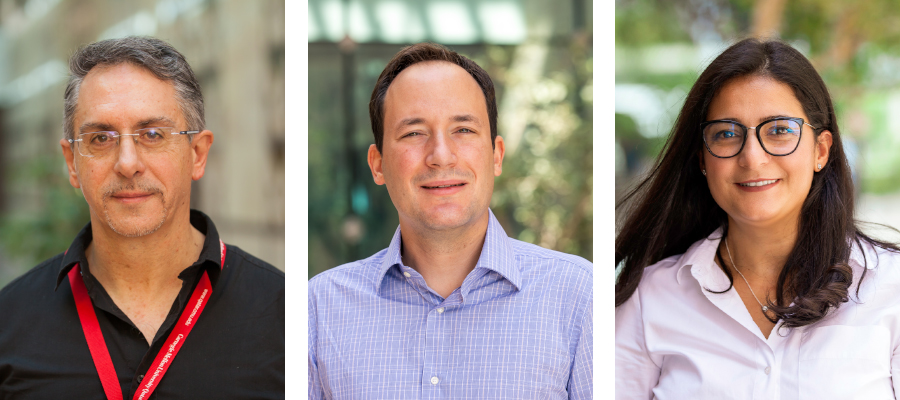
Carnegie Mellon receives grants for AI research into key areas for Qatar
CMU-Q researchers tackle three new projects supported by Qatar National Research Fund
Carnegie Mellon University in Qatar (CMU-Q), a Qatar Foundation partner university, will be using expertise in artificial intelligence (AI) to address the priorities of food sustainability, energy sustainability, and Arabic language proficiency in three new grants from the Qatar National Research Fund (QNRF).
Michael Trick, dean of CMU-Q, notes that research is part of the fabric of Carnegie Mellon. “At Carnegie Mellon, we do research that has a real-world impact,” he said. “These three projects are in priority areas for Qatar, and I am very pleased that our expertise in artificial intelligence will help Qatar achieve National Vision 2030.”
The first project will have a direct impact on the way Qatar’s greenhouse farms care for crops. Gianni Di Caro, associate teaching professor of computer science, will be the lead principal investigator on a project to integrate robots and artificial intelligence to autonomously and periodically gather visual data about crops to assess their development, quality and expected yield. The project is funded by the National Priorities Research Program (NPRP), QNRF’s main funding program. Research partners include Al Sulaiteen Agricultural Research, Study and Training Center, NHL Stenden University of Applied Sciences in the Netherlands, and Università degli Studi di Milano in Italy.
Di Caro and Eduardo Feo Flushing, visiting assistant teaching professor of computer science, will also contribute their expertise in AI to automate the cleaning and monitoring of solar panels in Qatar. The project is led by the Qatar Environment and Energy Research Institute, part of Hamad Bin Khalifa University, and is supported by the TÜBİTAK – QNRF Joint Funding Program. The project will include industry and academic partners in both Qatar and Turkey.
Houda Bouamor, associate teaching professor of information systems at CMU-Q, will be working with lead investigators at Qatar University to develop the first system that automatically scores Arabic essays written by high school and first-year university students to assist their Arabic writing proficiency in the dimensions of style, relevance, organization, and development. This team is planning to integrate the systems with Qatar University Testing Center and Pre-University Education schools at Qatar Foundation. The project is funded by the National Priorities Research Program (NPRP), QNRF’s main funding program.
Dean Trick noted the collaborative nature of each of the projects. “Technology touches nearly every aspect of modern life, so collaboration is key to advancements that will both improve quality of life and serve our priorities as a society.”
Carnegie Mellon is home to the world’s leading experts in a range of fields. In this tradition, the Qatar campus nurtures and develops opportunities for researchers to pursue regionally relevant projects in their areas of expertise.
